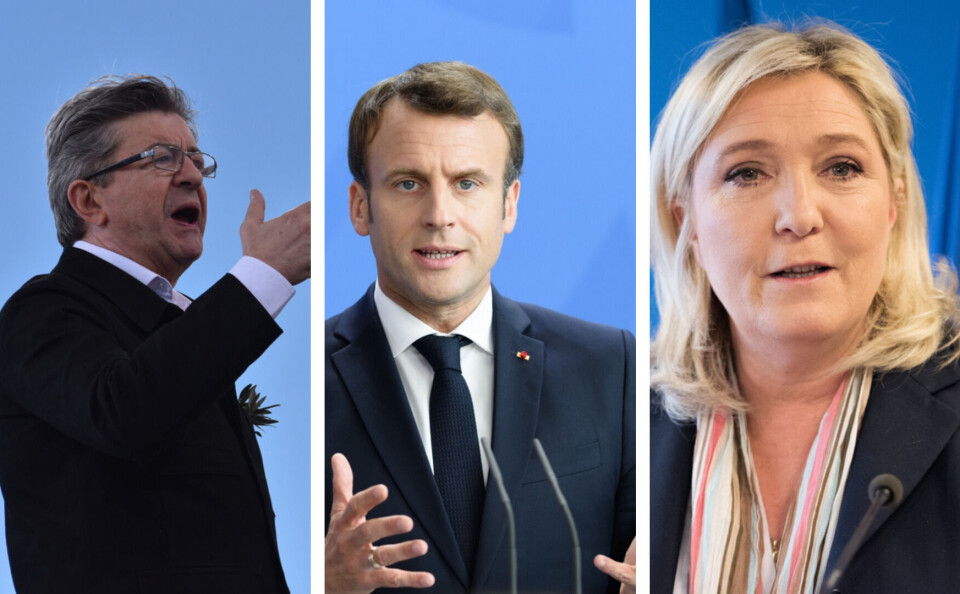-
The magic of mayonnaise: Why a homemade emulsion always woos guests in France
Plus, which shop-bought mayo brand is best?
-
Letters: Beware the financial cost of losing a spouse in France
Connexion reader faced unexpected expenses and legal hurdles after their partner's death, which added stress to an already difficult time
-
Letters: France's language requirements for residency are simply unrealistic
Reader says it takes a minimum of three years study to prepare for France's DALF C2 diploma
Crazy world of politics as Macron’s challenges move from Right to Left
Richard Ogier explains why France’s newly re-elected president still has an uphill battle trying to navigate the country’s complicated political scene

If you were an alien from beyond the planets suddenly arriving in France, you’d be witness to some of the Earth’s most extraordinary landscape and architecture. And some of its most dramatic, convoluted politics.
Seven weeks ago, French President Emmanuel Macron won re-election against Marine Le Pen, the head of a party, which is really a family dynasty, known as the far-right Rassemblement National (National Rally). On Sunday, Macron is facing the final vote in parliamentary elections he needs to win to govern effectively against, notably, a new group and its far-left leader, Jean-Luc Mélenchon.
Even Earthlings foreign to France can be mystified and fatigued by the machinations of the electoral system. After Macron’s two-round re-election in the présidentielle, the législatives ask voters to return to the ballot box for an excruciating third and fourth time to choose their MPs. Increasingly, they don’t. The Abstention rate for the first round on June 12 was 52.49%, a record high.
Read more:Legislative elections first round: How did your area of France vote?
Read more:Eight key points from the French legislative elections first round
Freshly re-minted as president, Macron pledged to come down from the mount of the Élysée Palace in Paris to the regions to be “with you” (the people, his election slogan), but has made few announcements and taken no new major policy initiatives. At the same time, his key lieutenants have slammed the Mélenchon unity ticket that millions of people have already voted for.
The “Nupes” as they’re known — like nuptials, relating to mating and marriage — won more votes than the president’s centrist “Ensemble !” grouping in voting last weekend (that third time at the ballot box). So the question now is whether “Ensemble !” can secure a clear majority in the run-off on June 19.
Since the presidential election, the big political story in France has been Mélenchon’s fancy footwork in pulling together the left-wing parties as “Nupes”: socialists; greens; communists and his own anti-capitalists. But he’s not only succeeded in formalising the union, he’s managed to impose his views upon it. As a French news magazine editor rued last week, what used to be known as the far left is now just “The Left”.
That reality means that France is taking itself further out on a limb. Germans defied the idea that social-democracy is incapable of meeting Europe’s current challenges when Olaf Scholz was chosen by delegates to succeed Angela Merkel as chancellor last year, alongside the centre-left in power now in Spain, Portugal, Malta and every Scandinavian country, in Italy, Belgium and Luxembourg as part of coalitions and, beyond Europe, in Canada, New Zealand and Australia since last month.
To be fair, a unity ticket of the left is clearly desired by many French voters. Perhaps the left in France is like the left elsewhere, only more so (thus more ‘authentic’?): always a plurality of forces, opposing views and rapprochements. And for these legislative elections, at least, disparate elements have managed to unite. Before the poll, a key consideration was whether the radicalised “Nupes” could attract moderate left voters, and the answer, so far, is yes.
The problem is that areas of genuine convergence are hard to see. Such a big stretch across vastly different policy positions looks like sheer contrivance; on energy and the environment, the moderate left and the communists want civil nuclear kept long-term; Mélenchon wants it abandoned by 2045. That would presumably mean shutting down some 56 reactors. On foreign policy, things are worse; the democratic left has been pro-German, pro- Anglo-American; Mélenchon’s far left is closer to Russia, acutely Eurosceptic and anti-NATO.
An opposing view runs that the socialists and greens ought to have the political spine to reconstruct (as in Germany) or enter into an alliance with Macron to directly influence his programme for the next five years. Instead, their choice has been to throw their lot in with the performance art of Monsieur Mélenchon, who’s priority has been to denounce Monsieur Macron.
Unlikely to win a majority — call it their pious hope — Mélenchon’s “Nupes” look set to become the first party of opposition, albeit a fractured one. This would in itself mark a considerable shift in French politics, where the far right has been the major recent opposition force.
The most likely outcome is that confusion will be added to confusion, France’s problems getting worse as the margin for manoeuvre in the face of them is narrowing. French politics has reached the stage where voters complaining Macron hasn’t done enough vote to diminish his capacity for action.
Richard Ogier is an Australian journalist and consultant in Strasbourg. He has written on France and Germany for the LA Times, Canadian Globe and Mail, Liberation and Handelsblatt in Germany among other media as well as for his native Australian press
Related stories
Macron praises Ukraine heroism on first trip to country since invasion
Macron’s pledge to cut French bureaucrat jobs will cause more problems
What will President Macron's second term mean for my money in France?
























